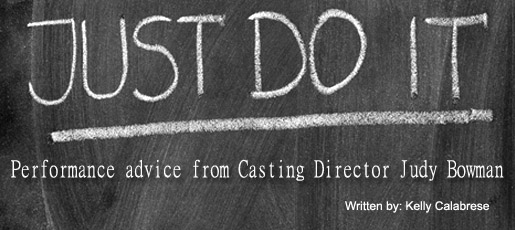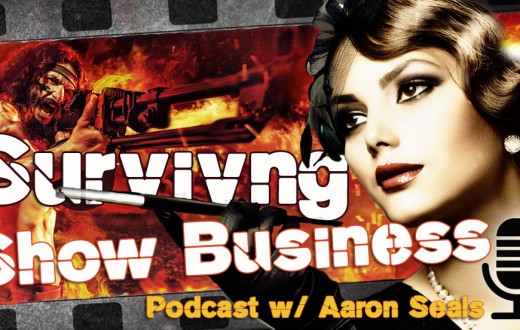A while back actor/comedian Patton Oswalt did a guest appearance on lefty comedic-political podcast Chapo Trap House. During a riff on embittered right-wing comedian/pundits whom Oswalt just doesn’t find that funny (think Fox News’ “Red State”):
“What I love about all these failed comedians is…it wasn’t show-biz failure, it’s that they weren’t immediately successful. My first four years of comedy was just death. You have to work at it for a long time,” he said.
Regardless of your views on comedy and/or politics, the kind of timeline Oswalt references can be instructive for actors as well.
When you talk with younger actors just out of school, it’s often really shocking to hear just how skewed their views on success and their acting careers can be. In fairness, we are living in a culture that’s obsessed with celebrity, and stories of overnight fame abound.
But even for actors who are more grounded in the acting part of being an actor, it’s easy to lose sight of what a long-term project forging a solid career really is. Here are a few ways to keep a realistic view of what it takes to develop a viable acting career over the long-term, and how to develop the building blocks you need to get there.
1. We All Just Need a Little Patience
When young actors come bursting out of a university theater program, they’ve just finished a mini-career arc of sorts: you start as a freshman, getting cast only in small roles or not at all. Gradually, you get better, and you land more roles in your college productions, until finally as a senior you’re the big fish in the little pond of your school’s program. But what often happens after graduation when the formerly big fish finds him or herself in the massive ocean of the professional acting world is profound disappointment. Suddenly you’re a freshman all over again, only more so because now your “school” is the entire world of acting. So the first step for younger actors is to take a deep breath and realize that the likelihood of instant success is statistically infinitesimal. The industry rule of thumb says you should expect 20 to 30 rejections for every role you land; some casting directors and agents say that new actors can count on a much higher rate of rejection than that. But allowing rejection to discourage you or even prompt you to give up on your dream is a huge mistake. Just remember where you are on the food chain now that you’re in the wider world, and learn how to pivot from one audition to the next, taking rejection in stride. Simply put, that’s a huge part of the gig, and you’ve got to develop patience to realize this is a long-term project, not an instant gratification exercise in vanity.
2. Develop Your Skills
Another common mistake younger or less experienced actors make is they don’t really know what they don’t know. It’s easy to graduate from a university theater program or jump off of a run of community theater shows into the professional acting world thinking, “Hey, look at me! I’m pretty damn great at this!” Now, this isn’t to say that you aren’t talented, or even that you aren’t good. But if you’re just dipping your toe into the professional acting world, you need to have some perspective; your experience is by definition limited. There’s always so much more to know about anything – but especially with acting. Graduating from a university theater program should be viewed as not the completion of your education as an actor, but as the 101-level prerequisite course you needed to get onto the interesting stuff. And if you’re serious about your love of acting, the thing to do now is to realize that no matter how good you are, you can always get better. Take an improv class, take a scene study class, and take an audition class, for starters. Read scripts and watch everything, go to the theater, watch new and classic films. Also, work! Just because you’re not getting cast in paid roles doesn’t mean you can’t be honing your skills – there are millions of indie projects, student films and guerrilla plays out there begging for talent, and every bit of acting you do makes you a better actor. Saturate yourself with acting as much as you can and over time you will find your skills improving as well as your success rate when you audition.
3. Develop Your Tools
Overlapping a little with the subject of not knowing what you don’t know for a lot of newer actors is what constitutes the proper, professional tools you need to get started in the professional acting world. Of course, we should all be familiar with creating a resume and what a headshot is. But it’s frankly alarming how many otherwise promising young actors sabotage themselves by handing out “headshots” that are actually crappy pictures taken by their friend Tyler that one weekend at the lake, or by submitting amateurish-looking resumes, or “acting reels” made up solely of home videos you shot in your basement when you were 17. Look, if you want to be taken seriously as a professional you need to represent yourself with professional tools. People often bitch about the price of headshots, but the price of getting dismissed without a second look because you’re using terrible headshots is even higher: if you don’t book the role, you don’t get paid, right? Do some research, find professional headshot photographers in your area and scrutinize their work. See if their portfolios have any shots of actors with a similar look or demeanor as your own, even if only to use as a jumping off point. You can’t be faulted for not knowing everything about the business or how it works at this point, but if you don’t do some research and find out, you’re not doing yourself any favors. To that end…
4. Expand Your Network
Another great reason for up-and-coming actors to jump into virtually any and every project they can get involved with regardless of pay is because this is a great way to develop a network of like-minded creative people. If you’re new to the area, get on social media and find actor’s groups, informal scene study or table read sessions for new works, or writer’s groups, and get involved in whatever you can. The friendships and professional relationships you develop here can also end up being long-term, and you never know where they might lead. Plus, as you work on the above steps and get your headshots and other tools of the trade, you can compare notes with other actors and avoid mistakes they’ve made, as well as getting recommendations for acting teachers and headshot photographers, and tips on who’s auditioning what. You can also get a better handle on what constitutes reasonable expectations for where you’re at right now, as well as getting the motivation you need to keep at it.
5. Develop Your Comfort Level
The lovely side effect of all this work you’re doing above is that over time what happens is you will get more and more comfortable in front of the camera. You’re also more comfortable in the audition waiting room, in casting sessions, and working the off-camera aspects of being a professional actor. Believe it or not, all of that informs how you are seen by people with the power to make decisions. Of course you’ve already got some level of comfort with acting for an audience or a director or a casting director, but another subtle change that only happens over time and with more experience is the actor relaxes more into him or herself. As young actors, we sometimes tend to put tremendous pressure on ourselves right out of the gate, perhaps having something to prove to ourselves, or to our family, or to the world, and that reads when you’re on camera or auditioning. But as you rack up more and more auditions, develop your skills and your associated bank of knowledge, as well as your circle of colleagues and friends in the business, you suddenly find yourself a whole lot more relaxed and comfortable in your own skin as a person and as an actor. That leads to not only getting cast in more roles today, but also to long-term success in this wonderful, amazing field you’ve chosen!







